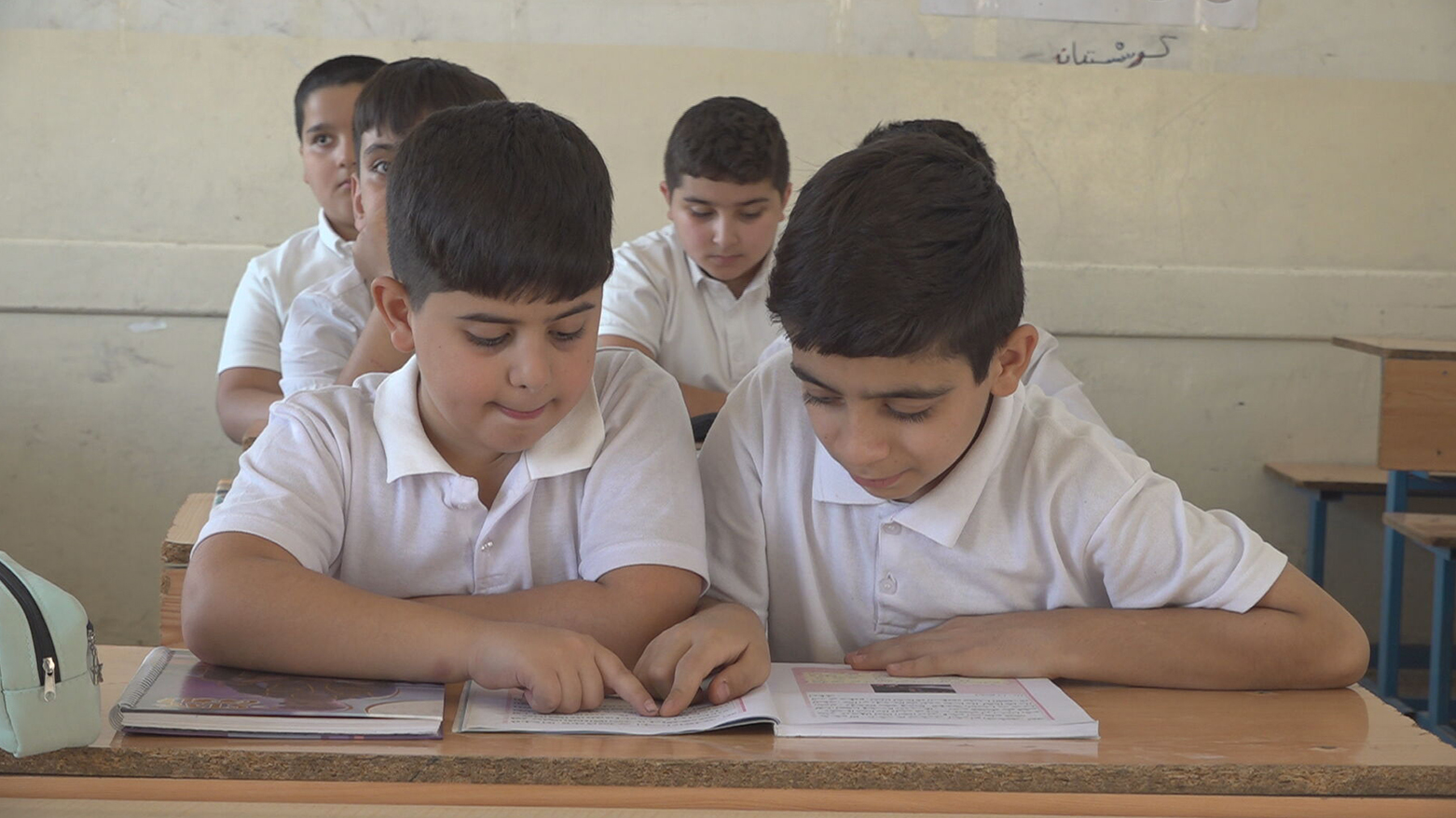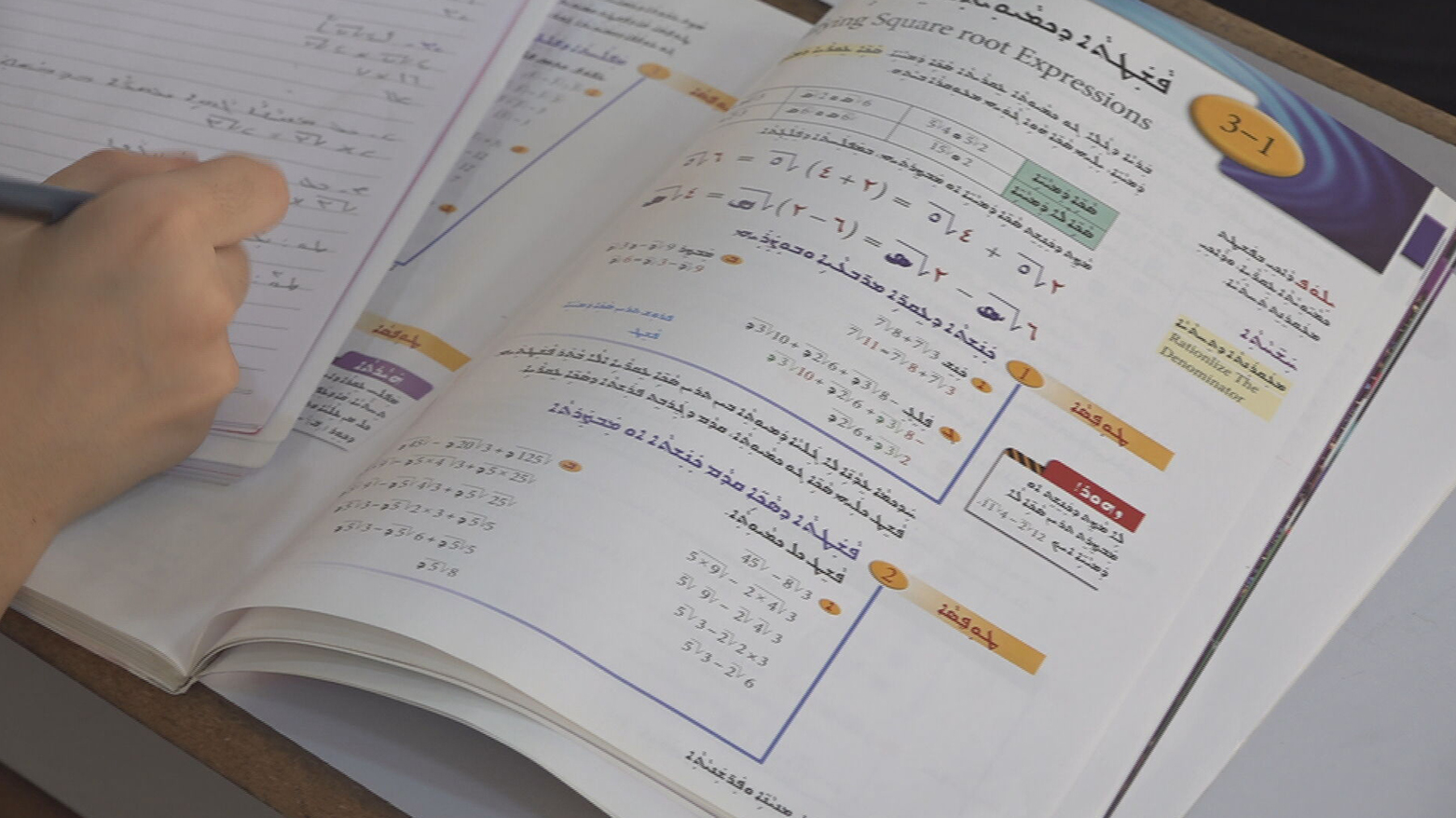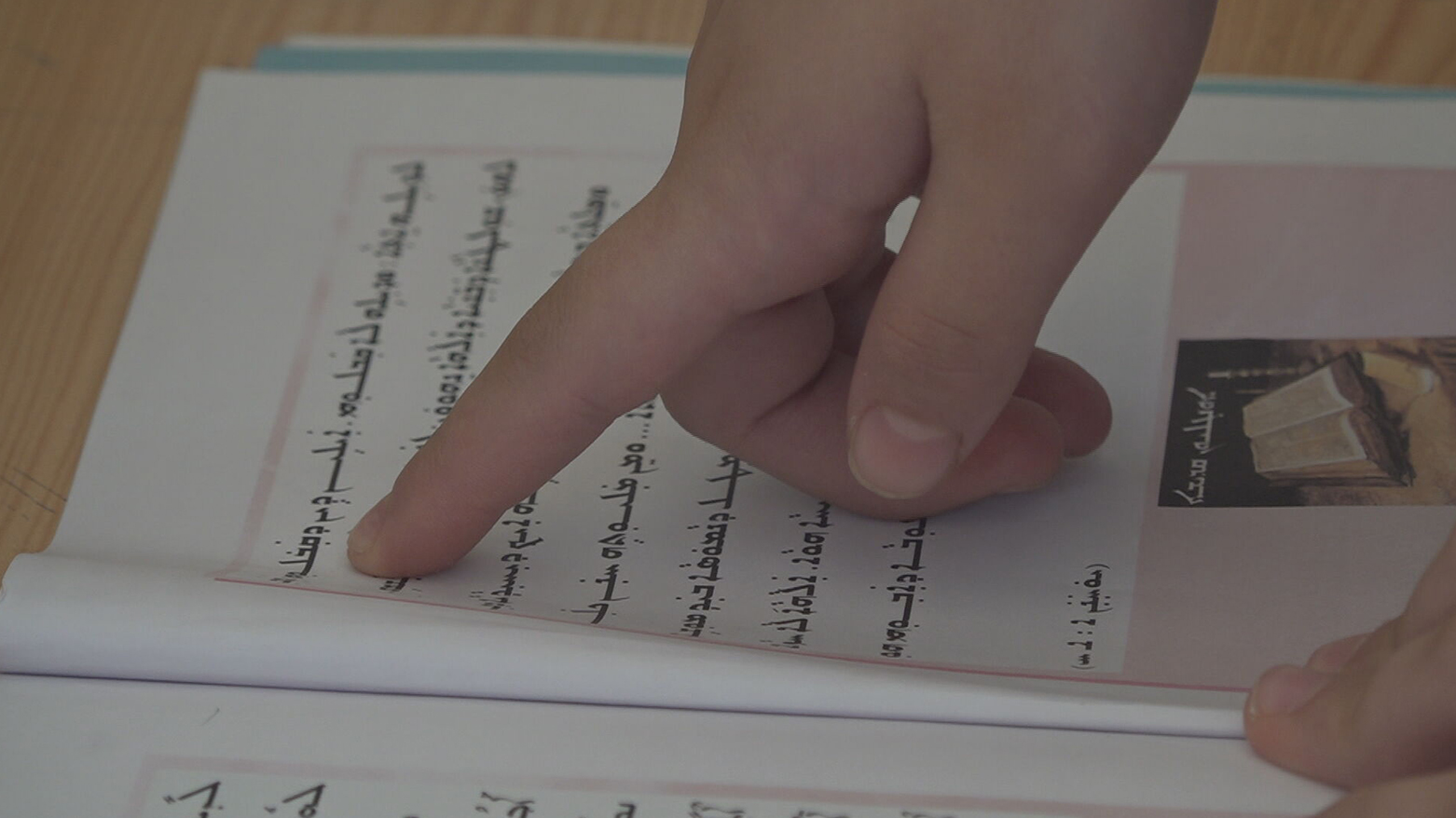In Kurdistan, Syriac Schools Keep an Ancient Language Alive
In the Kurdistan Region, 50 KRG-supported Syriac schools thrive, providing education in the mother tongue. Students report that this approach is more enjoyable and greatly improves their understanding and learning, reflecting a successful model of the region's commitment to coexistence and heritage.

ERBIL (Kurdistan24) - In the classrooms of the Kurdistan Region, a quiet but profound success story is being written in one of the world's most ancient languages. For students like Sherpil Shimul, a ninth grader attending a Syriac-language school, the daily act of learning is intertwined with a deep sense of identity and understanding.
"This is my mother tongue," he confirms, articulating a sentiment shared by many of his peers. "When I study in Syriac, I understand and learn much better."
Shrpil's experience is not an isolated one; it is a direct result of a long-standing and deliberate policy by the Kurdistan Regional Government (KRG) to nurture and protect the linguistic and cultural heritage of all its components.
Across the region, 50 dedicated Syriac schools, operating with the full backing of the government, are providing a vibrant educational environment where thousands of students are not only mastering their curriculum but are also strengthening their connection to a language and a history that stretches back millennia.
This robust system of mother tongue education, which spans from the primary to the secondary stages, is seen by students and educators alike as a cornerstone of effective learning. Students indicate that being taught in the Syriac language has a tangible and positive effect on their comprehension and academic performance.
Oriana Roni, another student, captures the joy and pride felt in these unique educational settings. "The Syriac language is our mother tongue and it is more enjoyable for us," she says. "Our teachers are also very good with us and teach us our lessons."

This positive feedback from the students themselves provides a powerful testament to the success of an initiative that has been a part of the Kurdistan Region's legal and political fabric for decades.
The Kurdistan Parliament first enshrined the right of components to study in their mother tongue into law in 1993, and the KRG has steadfastly supported this right since its very first cabinet, creating a policy framework that is widely viewed as a successful model for coexistence and minority rights in Iraq and the broader region.
The government's commitment is comprehensive, ensuring that these schools are not merely symbolic gestures but are fully equipped and staffed institutions.
Fahmi Sliwa, the Director of Education for the outskirts of Erbil, where four of these Syriac schools are located, emphasized the government's unwavering support. He stated that in the crucial areas of textbooks, building infrastructure, and qualified teachers, there are no shortcomings. On the contrary, he noted that greater attention is paid to this sector to ensure its continued success.
This dedication is part of a wider vision for an inclusive society, a vision powerfully articulated recently by Prime Minister Masrour Barzani. Speaking at a historic conference in Erbil commemorating the 1700th anniversary of the Council of Nicaea, the Prime Minister declared that peaceful coexistence is one of the "bright features and characteristics of Kurdistan's society."
He reaffirmed that the KRG has "full faith in protecting and defending religious, national, and cultural diversity," a principle that finds its practical application in the flourishing Syriac school system.
In his address to an international audience of patriarchs, clergy, and academics, Prime Minister Barzani specifically highlighted the government's continuous support for the Syriac language, which he noted is the ancient tongue of the Chaldeans, Assyrians, and Arameans, and the language spoken by Jesus Christ.
He confirmed the operation of the 50 dedicated Syriac schools, where thousands of students are educated in this historic language through the efforts of the General Directorate of Syriac Culture and Arts. This initiative, he explained, is a key part of the government's commitment to ensuring that the diverse communities of the region can thrive.
He recalled that the first Syriac symposium was held in Erbil last year with the government's backing, another example of the concrete steps being taken to preserve and promote this vital cultural heritage. This holistic support demonstrates a deep understanding that language is the lifeblood of a culture, and its preservation through education is essential for its survival.
Moreover, these schools are not insular institutions. They are designed to foster social integration while celebrating unique identities. In addition to Syriac, the curriculum also includes the teaching of Kurdish, English, and Arabic, equipping students with the multilingual skills necessary to navigate the diverse society of the Kurdistan Region and the wider world.
In a testament to the welcoming and high-quality environment of these schools, a number of Kurdish students have also chosen to enroll, studying alongside their Syriac-speaking peers. This organic integration within the school system reflects the broader societal ethos that the KRG seeks to promote—one of mutual respect and shared community.
Prime Minister Barzani's speech at the Nicaea conference further contextualized these educational policies within the government's overarching mission to remain a "shining home" of coexistence. He assured the distinguished attendees that the KRG, through its Ministry of Endowments and Religious Affairs, is committed to caring for the holy places of all religions.
He stated that alongside giving importance to mosques and temples, the government "also assists and supports churches," and proudly announced that "four new churches will be opened soon in Erbil and Duhok." Initiatives like these, alongside the annual National Day of Prayer held in Erbil under the supervision of President Masoud Barzani, are all part of a concerted effort to "strengthen the values of peaceful coexistence, tolerance, and religious freedom."
This philosophy is rooted in a shared history and a collective vision for the future. "Kurdistan is the homeland of all of us," Prime Minister Barzani declared. He drew a poignant parallel, stating, "Just as the components of Kurdistan have together faced oppression, tyranny, and occupation, today we are also together for the sake of building, reconstructing, developing, and advancing our homeland."

The investment in Syriac education is a direct and powerful manifestation of this principle. By empowering young people to learn in their mother tongue, the KRG is ensuring that the Syriac community, along with all other components, can participate fully in the project of building a prosperous and inclusive Kurdistan.
For students like Sherpil Shimul and Oriana Roni, their school is more than just a place of learning; it is a daily affirmation that their language matters, their heritage is valued, and their future is an integral part of the future of Kurdistan.